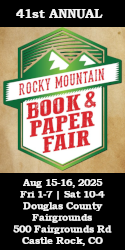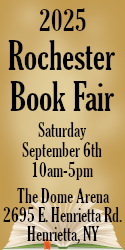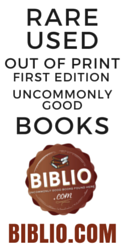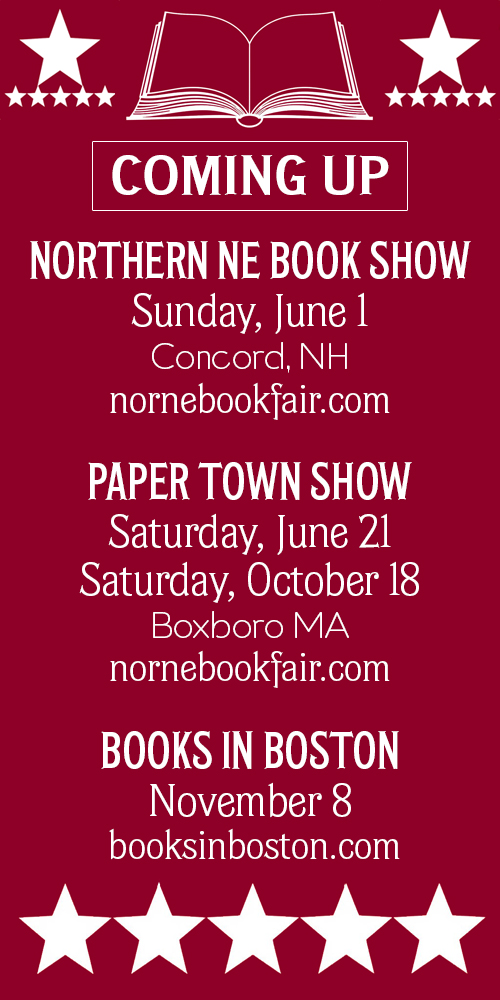Plagiarize, Publish, and Perish
In his first album of recorded songs, in the early nineteen-fifties, the great Tom Lehrer celebrated the work of Nicolai Ivanovich Lobachevsky (1793-1856), a Russian mathematician best known – at least, until Tom Lehrer got to him – for his development of Non-Euclidian Geometry. According to the record jacket, Lobachevsky’s name “was chosen here solely for prosodic reasons,” and that is probably just as well, for his name would otherwise now be mud. Tom Lehrer celebrates Lobachevsky as the greatest plagiarist of all time, attributing to him, in song, the marvelous motto: “Plagiarize! Plagiarize! Let no one else’s work evade your eyes!” I have enjoyed this (and other gems of Lehrer’s genius) for almost fifty years, and somewhere in the depths of Don Juan, George Gordon, Lord Byron refers with comparable genius to “what others pass for wit by quoting”; but oddly, that lovely Quotation is not in Bartlett’s any more than Tom Lehrer’s is.
Of course, in the fifty-three years that I’ve spent in classrooms, man and boy (cf. A.E. Housman, “To An Athlete Dying Young”), plagiarism has never really been a joke, but because at root it has ever been contemptible it has been, as for Mr. Lehrer and Lord Byron, ripe for ridicule. Not now, and I will tell you why. A prize-winning student of mine (it is unlikely that anyone who could identify her will read this piece) entered a highly prestigious university last fall, where she was happy and productive, finishing the Fall Semester superbly. A week or two into the second semester, however, she incorporated in a paper about Shakespeare something she had derived from the Internet. (What she did, exactly, I do not yet know, nor is it relevant to this discussion. That having read Shakespeare with me she made such a move is even more puzzling: it’s like getting McDonald’s To Go when you could be dining at the Algonquin – but that is not relevant either.) Somebody somehow spotted this “attribution-of-source issue” (my former student’s admirable mother’s phrase), and here’s what the prestigious university said, in effect: You’re out, for now, and you have no credit for your Fall Semester. You may return next fall – but only as a freshman – if you give evidence of having held a paying job for six months in the meantime. (This is only a third-hand approximation of what I am told the university said: see how careful I’m being?) But these are, indeed, “heavy misfortunes” (Jane Austen, Pride and Prejudice, Chapter LVI), academically, personally, socially, financially.
Of course, my first response to this news was to get mad at the institution, not at my former student. Her mistake was going on the Internet at all, for it will soon make every value and creed of my profession obsolete, if it has not done so already. Fine for buying or selling shoes or finding old man’s hats like mine these days, it peddles to our students as common knowledge what is not necessarily knowledge at all, and it is a disaster to education insofar as it is a hasty and not provably valid redefinition of learning and its sources. No reason to learn anything, if it’s at your fingertips anyway. Furthermore, the degree to which knowledge (or information, not the same thing at all) is readily available on the Net must confuse our students: it’s in the public domain, sitting there, true or false; we (some of us, actually very many of us) set the innocents up to seek it, then blast them for not citing it. Much of our perceived problem just now with plagiarism is hugely our own fault if we ask for “A Character Sketch of Nicolai Ivanovich Lobachevsky” we’re inviting what we turn around and term “plagiarism,” if we don’t explain at enormous length and in great depth the difference between passing off another’s work as your own and using another’s work to augment your own, and this is a serious distinction we shouldn’t have to but now must explain almost daily. We have taken too little care of this (Shakespeare, King Lear). Any account of, let’s just say, Lobachevsky must be unoriginal, like my own. The issue indeed becomes “source attribution,” but I’m not sure why, when suddenly the source is available on an unprecedented universal scale to anybody who can type the first four letters of his (or her, sure) topic. To protect our student while we can, our classrooms should renounce, denounce, decry and repel the Internet absolutely. The line between “plagiarism” and “research” was laughably fine when I was in graduate school thirty-five years ago; now – thanks to the Net -it is hilariously imperceptible to little kids and the former president of Hamilton College alike. Whatever mistake my former student made, I’d blame the culture and the institution first...and I realize that this is a moral or ethical quicksand. The university’s extremely tough line seems to me an image of widespread, laggardly abnegation of academic responsibility. The Net has no more place in a student’s study of literature than does an X-rated video or dope, and schools and colleges should be saying so in their catalogues and application forms...and, by implication, in their diplomas. The ancient university in question is a century behind the times in its adjudications: by its current standards it would fault Abraham Lincoln for not footnoting every two-syllable word in the Gettysburg Address. Where’d he get them? No way an Illinois bumpkin could have known them on his own. Didn’t make them up. Books? Teachers? Dictionaries? Is there an “attribution-of-source issue” here?
The very accessibility and anonymity of the Internet make it, to the minds of youngsters who have grown up with it, public domain and a fountain of knowledge at the same time. If you use the Internet to document the distance from New York to Los Angeles or from here to the sun, do you have to cite that? Of course not. If you down load your piece on Lobachevsky from the Internet, you do. What’s the difference? My position, here, of course is hyperbolic; but in my classroom it is not, for we have bred up a generation of students who quite honestly need to be taught the difference – if there is one – in a way that we did not. By turning virtually everything into “common knowledge” for every kid in the country – in the world– who has a lap-top, technology has again far out-paced our human capacity to govern or benefit from it. That my college freshman friend did not believe she was doing anything wrong may be hard to understand and easy to sneer at – but it’s true, just the same, and she did not create the brave new world in which such things can be and overcome us like a summer’s cloud. We did that.
Most readers of this highly-literate journal will have noted that in the foregoing sentence I used a phrase from Shakespeare’s The Tempest and slightly rephrased a line from Macbeth– without attribution. What must now become of this ancient and honorable game of the literati, the dropped allusion or quotation without quotation marks? That in fact there is an “attribution-of-source issue” is exactly what makes it a game. Despite what Lord Byron said everyone (who gets it) understands that P.G. Wodehouse is not plagiarizing when he has Bertie Wooster say that his heart is bowed down with weight of woe, or has him say “I had rushed in where he had feared to tread,” or when Jeeves refers to knotted and combined locks or the cat in the adage. These are quotations without quotation marks, indeed, but there is an assumption – a convention – that they will be recognized as such, even readily identified. Of course, it is not an invariably sound assumption: many of Wodehouse’s allusions are elusive, and some remain still unidentified even by the greatest experts, London’s Richard Usborne and Norman Murphy, although it’s obvious that allusions for a certainty they are. (I am certain that the title of a Wodehouse story – “The Awful Gladness of the Mater” is derived from a line of English poetry I read and lost long ago, referring to “the awful gladness of the matter.”) Here the question of whether Wodehouse is “passing off the work of others as his own” or doing something else seems to turn wholly upon the readers preception of his motive, which included no attempt to cheat. That might just possibly be true of the case history above: when a certain body of knowledge by some means does become public domain, if doesn’t have to be cited. If that moment is difficult to define, there’s all the more reason for our working to define it.
A variation of the dropped allusion, also very frequent in Wodehouse, is the veiled or mangled allusion, again without attribution. In Aunts Aren’t Gentlemen, the last novel Wodehouse lived to complete, Bertie Wooster, the young man-about-town who is always getting into hopeless scrapes from which only Jeeves, his personal attendant, has the cleverness to rescue him, finds himself in a scrape so hopeless that he remarks that he felt “as much like a toad at Harrow as anybody with an Eton education could.” Bertie is unconsciously mangling a line from Kipling, to which Wodehouse is deliberately alluding in the confidence that his readers will get the joke. Just imagine what a footnote would do to it! When he is not so confident of his readers’ literary awareness, however, Wodehouse does in effect provide a footnote. In Chapter 25 of Something Fishy, the following dialogue occurs between Keggs the butler and Mortimer Bayless the art critic:
“You are leaving Shipley Hall, sir?”
“I am. It stinks, and I am ready to depart.”
Evidently not sure that we are as up on our Walter Savage Landor as we are on our Kipling, earlier in the chapter Wodehouse has Mortimer Bayliss recall that eminent Victorian’s [Editor’s Note: Lytton Strachey entitled a book Eminent Victorians; we’re covered] famous – or only famous – couplet:
I warmed both hands before the fire of life.
It sinks, and I am ready to depart.
It’s a little labored, perhaps, but to me well worth the effort – to be sure we get the joke, not to give Walter Savage Landor his just attribution. Wodehouse does roughly the same thing when, in response to Bertie’s “Hail to thee, blithe spirit,” he has Madeline Bassett say, “You know your Shelley, Bertie,” and he says, “Oh! Am I?” A dropped allusion. A joke. Not plagiarism.
Wodehouse is writing fiction and being funny, not turning in a piece of work for academic credit. Uniquely, however, the Internet has so swiftly broadened everybody’s scope, putting at the press of a button into anybody’s pocket what not long ago would have meant quite a lot of serious library and research, that it seems to me that we – our students especially – need some new rules. Foremost among them in my classroom is “Don’t touch it!”
Reading an article recently on this subject in Bowdoin, the alumni magazine of my alma mater, I learned a rule I didn’t know, or at least had little thought about: submitting a paper in one course that has already been submitted in another course, without the permission of both professors involved, is a form of plagiarism, even if the paper is wholly original and impeccably documented. I see the logic, at least in a scholarly or academic context, but I think it’s tricky. When I was a junior in prep school, I wrote a little verse concluding with this hitherto unpublished couplet:
I wonder, too, what sort of pelf
Accrues to him who quotes himself.
Now I have some idea, and therefore I’d better mention that the sentence above about Aunts Aren’t Gentlemen is quoted verbatim from an article I wrote for the Kent Quarterly in 1981, which (with full acknowledgement) was reprinted as Number 3 in the Heineman series of monographs on P.G. Wodehouse. Again allowing for some distinction between the artistic and the academic endeavor, I perceive that the questions of what must be attributed to whom and when are not absolutely clear. One reason that P.G. Wodehouse was so prolific is that he was a master of the art of self-derivation – what now, I gather from a respected junior colleague, is termed “re-purposing.” This summer will see in London the first publication in book form of A Prince for Hire, a novelette that began in 1909 as the novel Psmith Journalist, then appeared in 1912 as The Prince and Betty on both sides of the Atlantic in two markedly different versions, and then appeared, completely rewritten, in serial form in the monthly Illustrated Love Magazine in America, in 1931. Very interesting. Was this an attempt to deceive anybody or bilk the paying customers? I don’t think so. An artist, surely, has the right to adapt his own work...even for money. On the other hand, might the paying customer – or the academic institution -term this whole deal a form of plagiarism? These days, quite possibly.
Wodehouse spoofed himself on this topic in the Preface to Summer Lightning as early in his long career as 1929:
A certain critic – for such men, I regret to say, do exist – made the nasty remark about my last novel that it contained ‘all the old Wodehouse characters under different names.’ He has probably now been eaten by bears, like the children who made mock of the prophet Elisha: but if he still survives he will not be able to make a similar charge against “Summer Lightning.” With my superior intelligence, I have outgeneralled the man this time by putting in all the old Wodehouse characters under the same names. Pretty silly it will make him feel, I rather fancy.
And so it should. What has this to do with the quandary of my college freshman friend? Well, the other day a college admissions officer told me that of four thousand application essays this year, fourteen were identical. That’s not bad, is it? All four thousand could have been identical, at the rate at which we’re going. As the Internet bestrides the narrow world like a colossus (there’s another one for you literary folks), everybody is going to be able to know everything, which means that everybody will be the same as everybody else; and then, in W.S. Gilbert’s phrase, “No one’s anybody.” And in the immortal line of James Thurber, “I say it’s spinach, and I say the hell with it.” So there.
Charles E. Gould, Jr. is a member of the English department at Kent School, an antiquarian bookseller, and P.G. Wodehouse specialist. He lives in Kent, CT and Kennebunkport, ME.


























